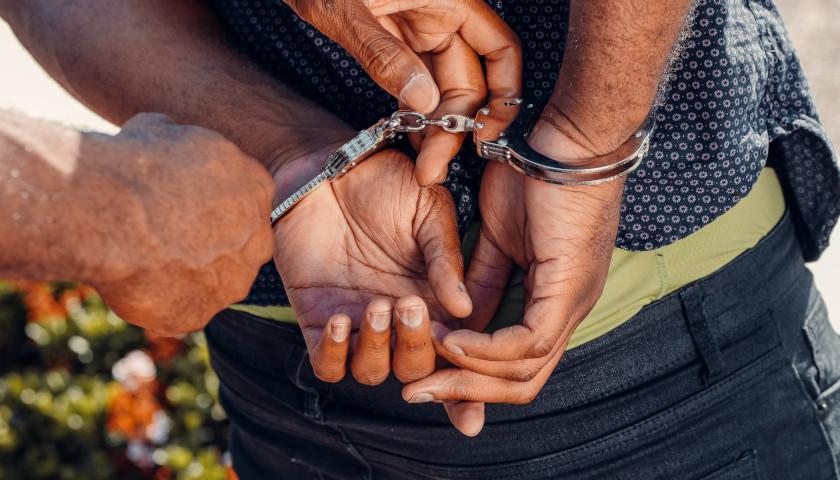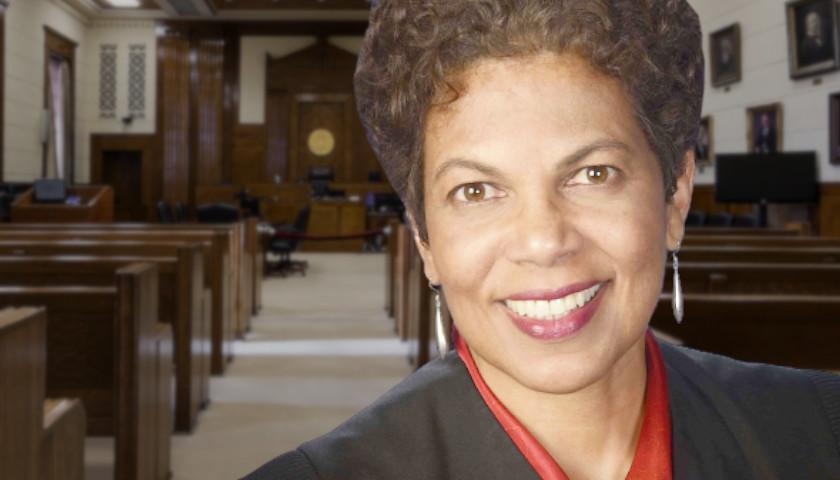In a special interview, Thursday on First Principles with Phill Kline – host Kline talked with Michael Patrick Leahy, CEO, and editor-in-chief of The Star News Network who uncovered partisan non-profit popups in swing states and the importance of election integrity as the deciding fate of America’s constitutional Republic.
Leahy: And it turns out, Phill, as you see the story in Michigan, it was the only state where that Center for Election and Innovation and Research money did not go to the Secretary of State. Now, if it goes to the Secretary of State, it’s discoverable how it was spent.
Kline: Right.
Leahy: It went to a shell 501 (c) (3) organization that has been around about ten years that had been established by the current Democrat Secretary of State Jocelyn Benson. And they got $12 million bucks. They sent it to a 501 (c) (3) called the Michigan Center for Election Administration. We just got a copy of their Form 990s from the IRS.
And – here’s the punch line – that $12 million dollars was basically all spent in two different groups. $11.8 million dollars went to a Democrat media buy firm that’s a subsidiary of the biggest Democrat consulting firm in the country.
That the media buy firm is called Waterfront Strategies. They got $9.7 million. And then Alper Strategies, the Michigan version of that, got $2 million. And their task, interestingly enough, you know what it was?
Kline: To get out the vote.
Leahy: To educate voters and get out the vote. Now we got that information. We have no information whatsoever on how they use that money. And it seems to me quite likely that the appearance of impropriety standard has been met for a complaint with the IRS or the FEC because these are Democrat firms. And the suspicion would be they sent text messages to Democrat voters to get them out. And they just might have lost all those Republican voters.
Kline: Absolutely.
Leahy: That needs to be investigated.
Kline: And, Mike, I want to let our viewers know that this takes digging. And our federal agencies aren’t trying to dig or understand the election. In fact, they’re trying to chill any review of the election.
Many times, people claim they have evidence of fraud, and they don’t develop it or understand it before they trot it out before the public. But you have the discipline to come to an understanding and keep pressing forward.
And as you press forward, you uncover all of the effort of the Left to not allow our election to be transparent. And this was the least-transparent election in U.S. history.
Leahy: Not only that, Phill, in Michigan, but this instance is also probably the most blatant and brazen violation, in my view, of campaign election law.
Kline: Why that money was given now, as you know, in Wisconsin, and this happened in the urban core. You and I have been talking about this and following it and exposing it now for several months. And we’ve still got a ways to go.
It’s amazing how this money was used to turn election offices that are supposed to be objective, run by the government into partisan campaign centers. In Wisconsin, they’re geo-fencing.
And for our viewers, that means all the data that’s flowing from your cell phone. You’ve got all these apps telling people where you are, what you’re doing, what you’re purchasing, and where you’ve been.
And they aggregate all of that data, and they sell it to people who are trying to sell you things. But they also sell it to campaigns and politicians to predict your behavior so they can identify potential voters.
The government did that this election to identify those who are likely to vote for Biden, and then government hired people to turn them out. And what Mike is talking about is the flow of so-called nonprofit monies.
You give to a politician, you’re not supposed to get a tax deduction. And the money goes through these pop-up nonprofits. In other words, they are created and they disappear.
And they are used for partisan campaign purposes. That’s a big story in the 2020 election, and you’re helping uncover it. And I greatly appreciate that.
Now, let me ask you this, Mike, because, you know, this has been dubbed, “The Big Lie.”
That there’s nothing to look at. Don’t slow down, keep driving forward, keep your eye on the road. Nothing to see here in 2020. Why do you believe it’s important that we understand what happened in the 2020 election?
Leahy: So it doesn’t happen again. And so people have confidence in the electoral process. People currently – at least half the country – doesn’t have confidence in the honesty and the fairness of the electoral process.
We cannot have a constitutional Republic continue if people don’t believe that the election is free and fair.
Are we Russia? Or are we China? Or are we the United States of America?
That is the central issue that we face today. And that’s why this research to show what really happened and restore confidence in the electoral process by putting reforms in where you can track all this stuff. That’s why it’s so very, very important right now.
There’s nothing, in my view, more important to the long-term survival of our country as a constitutional Republic than restoring confidence in the fairness of our electoral process.
Kline: I have often described the 2020 election as the most lawless in U.S. history. What I mean by that is using COVID fear, private monies, local election officials rather than state legislators who unilaterally defied state law in all of these cities and swing states that Zuckerberg money touched. Now, do you agree with that?
Do you have the impression that this election had the least uniformity? In other words, every voter treated equally and all the laws applying equally within the state. Do you see this disparate treatment?
Leahy: I think the most obvious example of that disparate treatment is the failure of many many states, dozens of states, actually, to follow election laws passed by the state legislatures and signed by governors into law with regards to the treatment of absentee ballots.
When you saw it in Georgia, where the placement of absentee ballots and drop boxes was not authorized by law in 2020, and it was only authorized by, as you pointed out, an emergency election code rule.
Now, it was an emergency election code rule meaning they didn’t have to put out a lot of public notice. They had only 30 days to review it, and they kind of snuck it in. But it wasn’t statutorily authorized.
And there were, as you know, 600,000 ballots placed in Georgia in the absentee ballot drop boxes. To this day, you can’t get a chain of custody.
Kline: You can’t get the chain of custody.
Leahy: The chain of custody documents for more than half of those absentee ballots cannot be found, won’t be reported.
Kline: When did you make your first demand for those documents, Mike?
Leahy: December 5th of 2020. And so we asked Secretary of State Raffensperger for the documents, chain of custody documents, tracking the movement of batches of absentee balance from the 300 drop boxes to the local election tabulation center.
And Raffensperger said, well, we don’t keep track of that. I said, really? I thought that’s what the Secretary of State did? He said no, you have to talk to all 159 counties.
Well, we talked to 159 counties, and we still don’t have 310,000 chain of custody documents for 310,000 absentee ballots in our possession and now nine to 10 months after the election. It’s unbelievable.
Listen to the full interview here:
https://www.youtube.com/watch?v=qZ9BwVioaPE
– – –




